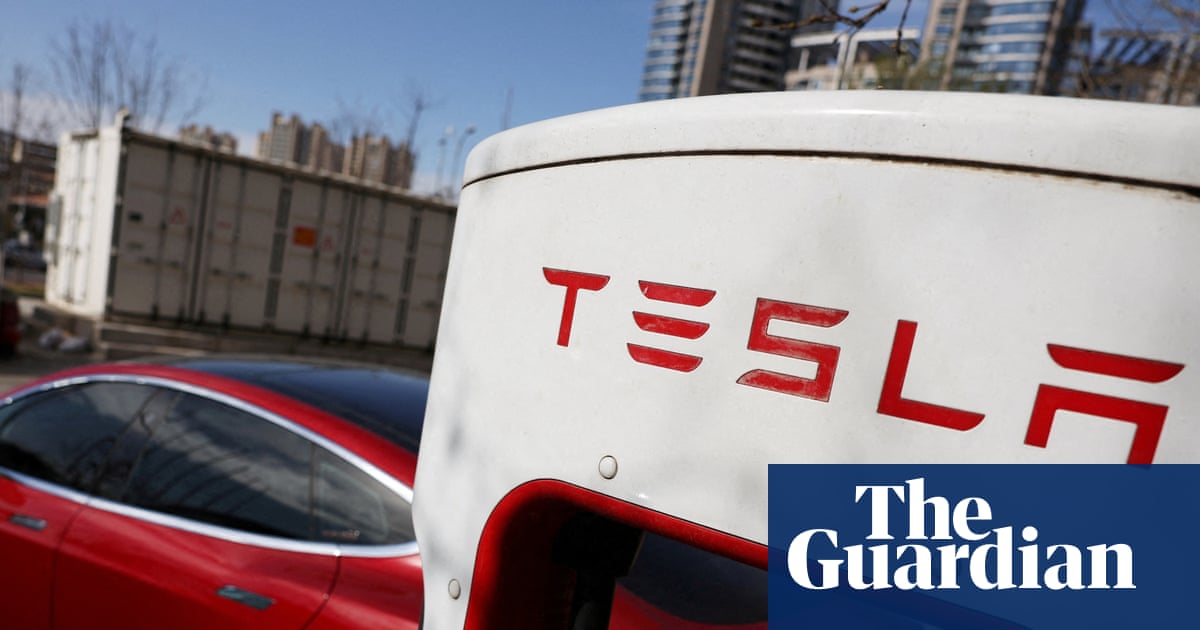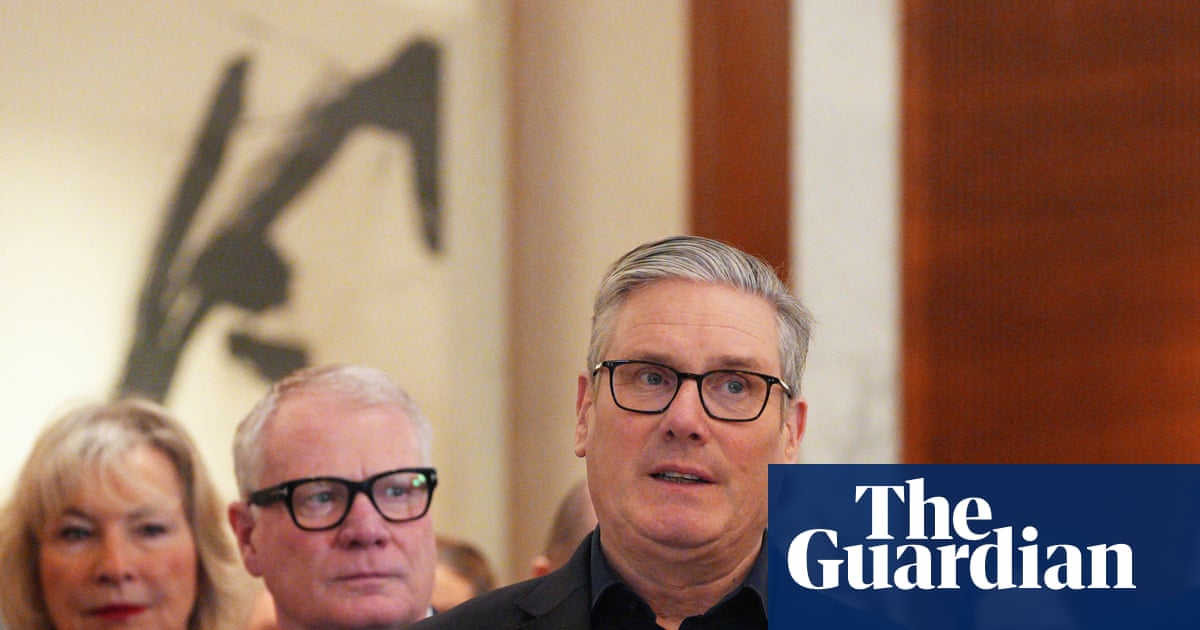MPs vote down Farage's proposal for UK to leave ECHR
The result is in. Nigel Farage was defeated by 154 votes to 96, a majority of 58.
The vote is not particularly meaningful. The main parties were not whipping their MPs, and so the numbers do not say anything significant about opinion in the Commons on leaving the ECHR.
The only parties in the Commons that clearly favour ECHR withdrawal are the Conservatives (119 MPs), Reform UK (5 MPs), and TUV (1 MP). Within the DUP (5 MPs), there is some support for withdrawal, but views are mixed.
Key events 29m ago Why Labour changed its stance on letting its MPs vote against Farage's bill for UK to leave ECHR 34m ago Epping sex offender given £500 after threatening to challenge deportation 51m ago How MPs voted on Farage's 10-minute rule bill to withdraw from ECHR 1h ago MPs vote down Farage's proposal for UK to leave ECHR 1h ago Davey says Farage has 'made his career by damaging our country' 1h ago Ed Davey defends ECHR, saying it 'protects very people who need it most' 1h ago Davey says leaving ECHR would align UK with Russia 1h ago Farage says ECHR is 'unfinished business', and that it gives political power to judges 2h ago Farage proposes 10-minute rule bill that would take UK out of ECHR 2h ago MSPs debate new early release plan as Scottish prison population reaches record high 2h ago Tories confirm Chris Philp's bill proposing mass deportation of people with indefinite leave to remain no longer party policy 2h ago Tightening Pip benefit eligibility could save £9bn a year, say Reform 2h ago Reform UK government in London would pose 'existential threat' to Scottish devolution, John Swinney says 2h ago Labour MPs unhappy about being told to abstain on Farage's 10-minute rule bill proposing ECHR withdrawal 3h ago Judicial review of Palestine Action ban to go ahead next month, after Home Office gives up trying to stop case being heard 3h ago PMQs - snap verdict 4h ago Starmer declines to rule out extending freeze on tax allowances 4h ago Starmer condemns Reform UK as 'Putin-friendly', as Ed Davey calls for probe into Russian interference in UK politics 4h ago Starmer says productivity figures show damage done to economy by Tories 4h ago Starmer refuses to say he remains committed to manifesto pledges not to raise income tax, national insurance or VAT 4h ago Starmer claims Green party wants to take UK out of Nato 5h ago Starmer faces Badenoch at PMQs 5h ago Jones rejects claim from Labour committee chair that government seems to be 'kowtowing to China' 5h ago Hermer rejects claim from former Labour defence secretary Lord Hutton that government complacent about China threat 5h ago Statistics watchdog reprimands Steve Reed for saying water pollution worse in Scotland than in Wales 5h ago Cabinet Office minister Darren Jones ducks question about whether China should be in enhanced tier for Firs rules 5h ago Hermer accuses Gavin Williamson of making bogus allegations against Jonathan Powell, underming faith in justice system 5h ago Counting in 2026 Scottish parliamentary elections will start on Friday morning, not overnight, officials announce 6h ago Hermer says claims that ministers intervened in China spy case 'disgraceful', in attack on senior Tories 6h ago Hermer says prosecution could have gone ahead under NSA, even though China not in enhanced tier under Firs rules 6h ago Hermer says, if spy case had gone to trial, Badenoch's quote saying China not a foe would have helped accused get off 6h ago Hermer says China spy prosecutions would have gone ahead if National Security Act had been passed ealier 7h ago Lord Hermer says, once China prosecution originally approved, attorney general had no further role in CPS decisions 7h ago Lord Hermer, attorney general, gives evidence to committee on China spy case 7h ago Government suffers 5 defeats in Lords as 'ping pong' starts over employment rights bill 7h ago Boris Johnson approved China’s London super-embassy proposal in 2018 7h ago Shabana Mahmood says Home Office not ready for all challenges, as it says illegal working arrests at record level Show key events only Please turn on JavaScript to use this feature
A reader asks:
What has happened to the abolition of hereditary peers bill?
The bill has gone through the Commons and the Lords, where peers passed a series of amendments that would undermine the bill. One of them would allow all the hereditary peers to stay, but would gradually phased them out over time by ending the system for Lord byelections to fill gaps left when a hereditary peer dies. MPs voted to take out those amendments in September. So the bill is heading back to the Lords for “ping pong”.
But, almost two months after those Commons votes, the Lords have not set a date for their next debate.
I presume government business managers are going to leave hereditary peers “ping pong” until nearer the end of the session, so they can run down the clock and use that as a means of getting peers to agree.
Peers love nothing more than debating Lords reform, and I presume the whips are worried that, if they schedule “ping pong” now, peers will waste all their time debating this bill and not get anything else done.
Why Labour changed its stance on letting its MPs vote against Farage's bill for UK to leave ECHR

Peter Walker
Peter Walker is the Guardian’s senior political correspondent.
The vote by 63 Labour MPs against Nigel Farage’s ten-minute rule bill on the UK leaving the European convention on human rights – without which the Commons would have backed the bill – happened because a few Labour backbenchers warned whips and the party hierarchy that they had to act.
While 10-minute rule bills have no chance of becoming law without subsequent government backing, MPs including Stella Creasy warned that allowing Farage’s bill to be passed would send a terrible signal to European neighbours, who would not necessarily understand the purely symbolic impact of the vote.
The initial instruction to Labour MPs was to not vote. After a pushback, this was amended to say that while frontbenchers should do this, those on the backbenches could vote if they wanted.
“To let such a bill pass at a time of sensitivity in negotiations over our European deal would be taken badly,” Creasy said.
Epping sex offender given £500 after threatening to challenge deportation
A convicted child sex offender mistakenly released from prison after arriving in the UK in a small boat was given £500 of public money as he was deported back to Ethiopia, Rajeev Syal and Pippa Crerar report.
How MPs voted on Farage's 10-minute rule bill to withdraw from ECHR
The division lists are out.
The 95 MPs voting for Farage’s proposal to leave the ECHR came from:
The Conservatives: 87
Reform UK: 3
DUP: 2
Independents: 2 (Rupert Lowe and Patrick Spencer)
TUV: 1
And the 155 MPs voting against came from:
Lib Dems: 64
Labour: 63
Independents: 10
SNP: 7
Plaid Cymru: 4
Green party: 4
Alliance: 1
SDLP: 1
UUP: 1
MPs vote down Farage's proposal for UK to leave ECHR
The result is in. Nigel Farage was defeated by 154 votes to 96, a majority of 58.
The vote is not particularly meaningful. The main parties were not whipping their MPs, and so the numbers do not say anything significant about opinion in the Commons on leaving the ECHR.
The only parties in the Commons that clearly favour ECHR withdrawal are the Conservatives (119 MPs), Reform UK (5 MPs), and TUV (1 MP). Within the DUP (5 MPs), there is some support for withdrawal, but views are mixed.
Davey says Farage has 'made his career by damaging our country'
Here is another extract from Ed Davey’s speech in defence of the ECHR.
The European Convention and its British twin, the Human Rights Act, have brought justice for our people, protected them from gross misconduct and unfair treatment.
These laws help individuals hold the powerful to account, to hold governments to account.
These laws can get justice when the elite and powerful cover up and abuse their power.
So it’s clear, isn’t it? [Farage] isn’t about standing up for the individual, for the ordinary person, for the people with no voice. [Farage] is the friend of the elite and the powerful.
And if we do not defend our human rights here at home, how can we possibly persuade other countries of the importance of human rights for their own people?
If we do what Reform wants, the biggest cheers will come from the Kremlin and from Beijing, from Tehran, from Pyongyang, and from dictators and authoritarian regimes the world over. That would be a betrayal of everything our country stands for.
Davey also attacked Farage over Brexit.
[Farage] has made his career by damaging our country. I remember how he led the campaign for Brexit with his Conservative friends. And we know what a total mess that’s turned out to be.
He and his friends argued Brexit would cut immigration, but immigration has gone up because of this. Just look at how badly he’s betrayed the people he claims to speak for. Brexit made the small boats crisis possible.
The two MPs acting as tellers for the ayes are Danny Kruger (Reform UK) and John Whittingdale (Conservative).
The two tellers for the noes are both Liberal Democrats: Wendy Chamberlain, the chief whip, and Claire Young.
Davey has finished his speech, and MPs are now voting.
Labour MPs have now been told they can vote against the Farage bill, Peter Walker reports.
I’m now told that govt whips have told Labour MPs they *can* vote against the Farage 10-minute rule bill if they want.
(Maybe our earlier reporting prompted a rethink?)
Ed Davey defends ECHR, saying it 'protects very people who need it most'
Davey says the ECHR “protects the very people who need it most”. He goes on:
Our elderly and most vulnerable. So they may live and grow old with dignity. Our children. So those facing horrific abuse have better protection.
It also upholds our freedom of speech so that the press and public can criticise those in power without fear. And it protects our peaceful right of protest.
Seventy years ago, Britain became the first country to ratify the convention as a leading voice on the global stage for human rights and the rule of law. That is our history. That is who we are. That is Britain at our best.
Davey says leaving ECHR would align UK with Russia
Ed Davey, the Lib Dem leader, is responding to Farage.
He says Farage’s speech “totally misrepresents the European convention”.
Farage did not mention the benefits of the ECHR, he says.
He goes on:
Let me give them one strong reason to think again. Russia under Vladimir Putin is the only country to have withdrawn from the European convention on human rights.
Now, maybe that’s what attracts [Farage] to it. After all, he said, the world leader he most admires Russia, a country where those who oppose the regime are mysteriously pushed off balconies, where, if it isn’t enough to murder a political opponent like Alexei Navalny.
Farage is now enduring sustained heckling from the Liberal Democrats.
He says he has never seen so many Lib Dems in the chamber.
He concludes:
You don’t believe this country is good enough to make its own laws.
Do you not believe a country that has Magna Carta and developed the principle of common law … you don’t believe we’re good enough to make these rules?
Farage says ECHR is 'unfinished business', and that it gives political power to judges
Farage says ECHR withdrawal is “unfinished business”.
He says the vote for Brexit was “the biggest democratic exercise in the history of these islands”.
We know that we voted clearly by a massive margin for the British people to bring back the sovereignty … It’s the sovereignty of this very chamber and the people within it to bring power back to this very place. And that is what we voted for.
The vote was also prompted by “deep alarm at the huge numbers of people coming into our country”, he says.
Open borders have made the UK poorer, he says.
He says Tony Blair enshrined the European convention on human rights (ECHR) into UK law.
Now, I believe that Brexit cannot be complete while we’re subject to a foreign court.
And he says the ECHR is law where “judges can choose their own political interpretation”.
He goes on:
I do not believe that it is right that we should, when it comes to controlling our borders, when it comes to who should be able legally to live, work and settle in this country, or indeed who should not be allowed to stay in our country, for this to be under the remit, firstly of judges in Strasbourg, who, by the way, are jurists, most of them not even legally qualified, and secondly, under the political control of judges in this country who now can make their own interpretation of what we’ve understood for many, many years to be British common law.
Farage proposes 10-minute rule bill that would take UK out of ECHR
In the Commons Nigel Farage is now proposing his bill.
The Labour benches are almost empty.
The Conserative benches are fairly empty too.
But the Liberal Democrats, and other opposition MPs from smaller parties, are out in force.
As Farage gets going, there is a lot of heckling. “Children, be quiet,” he says, which prompts an intervention from the deputy Speaker.
In the Commons Seamus Logan (SNP) is using a point of order to complain about Steve Reed, the housing secretary, and former environment secretary, making misleading statements about the quality of Scottish water. (See 11.28am.)
Judith Cummins, the deputy Speaker, said that she was sure the government would have registered Logan’s point.
MSPs debate new early release plan as Scottish prison population reaches record high

Libby Brooks
Libby Brooks is the Guardian’s Scotland correspondent.
MSPs are debating whether to approve the further early release of prisoners as Scotland’s prison population reaches the highest level ever recorded and frontline prison officers warn that the day-to-day challenges of managing overcrowding have brought them to crisis point.
Earlier this week, the Scottish Prison Service said the prison population was at a record high, with 8,430 people behind bars. In a bid to ease overcrowding, the early release of prisoners regulations were debated by Holyrood’s criminal justice committee this morning, with MSPs set to vote on their recommendations at a later date. If approved this will be the third early release over the past two years.
Scottish Prison Service chief executive Teresa Medhurst warned that the population had now reached a level “that raises very serious concerns around our ability to keep people safe and secure”.
This was echoed by a new report from the Prison Officers’ Association, describing fears for their own safety and that of inmates. Phil Fairlie, the assistant general secretary of the POA, said:
The biggest worry for us just now is staff, I think, feel unsafe inside the prisons, I don’t think they feel they’ve got proper control. I don’t mean that the prisons are out of control, but they are working their socks off every single day to try and keep that control.
The building of a £1bn jail to replace Glasgow’s HMP Barlinnie has faced multiple delays, with the current opening date of 2028 now in doubt. The Prison Service has also described how successful prosecution of serious organised crime groups has left prison officers facing “a daily game of chess” in order to keep violent rivals apart.

 3 months ago
43
3 months ago
43

















































